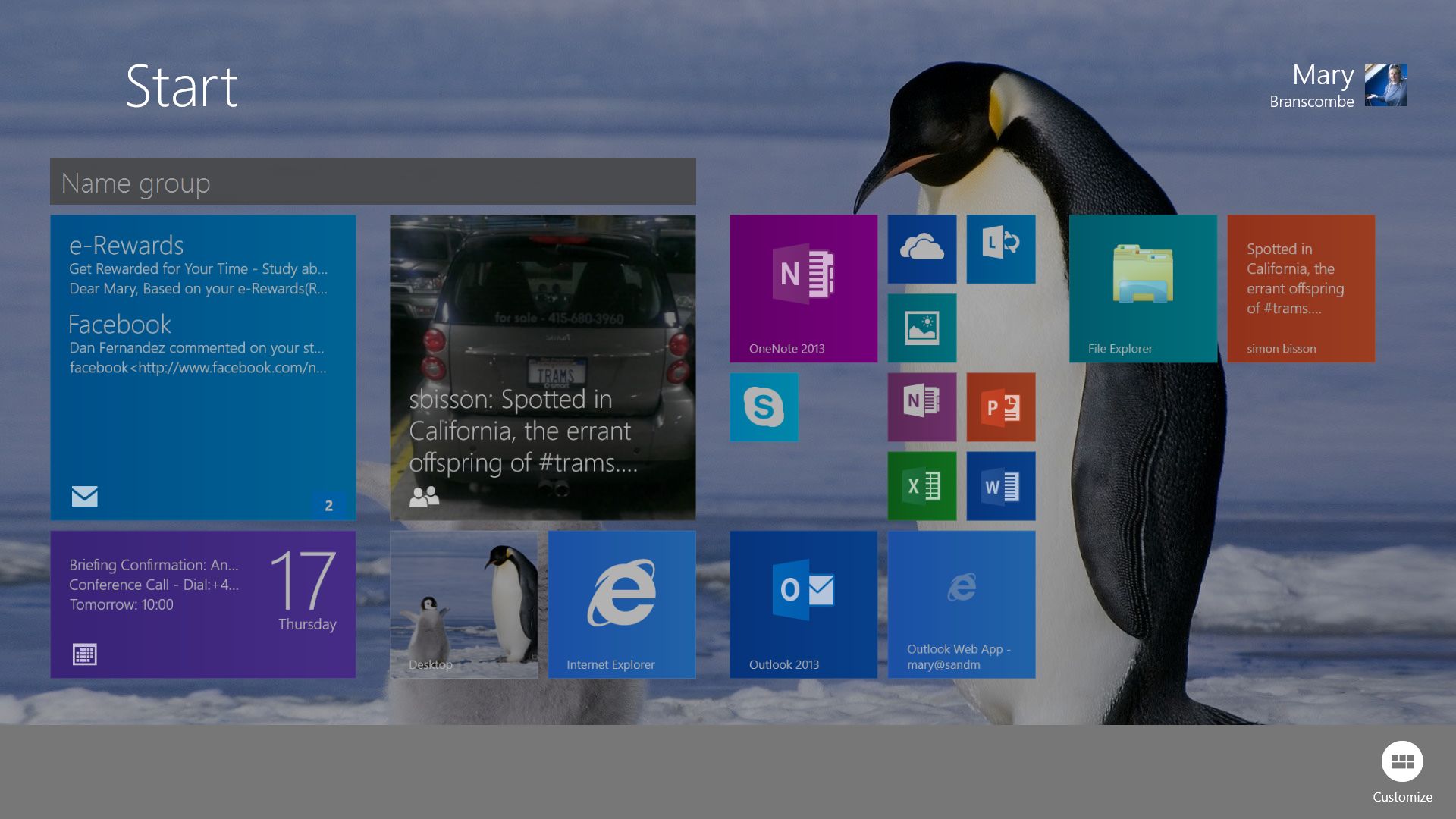Why Microsoft must ensure Windows 9 is a big success
Windows 7 must not become another Windows XP

Update: Windows 9 is now known as Windows 10. Want to know more about when you can get your hands on it? Check out our in-depth Windows 10 release date page
According to Gartner, 2013 was the worst year in the history of the PC business as sales plummeted by 35 million units year-on-year.
Rather than giving PCs a shot in the arm, Windows 8 appeared to have put them to sleep: in February 2014, Netmarketshare reported that Windows 7 had 48% of the PC market compared to just 11% for Windows 8. Windows XP, a 12-year-old OS, had 29%.
The good news is that things are looking better this year and PC sales are on the rise. The bad news is that that the reason doesn't appear to be Windows 8.1.
According to August's figures from Net Applications, Windows 8.x is suffering from declining market share – a small decline, but a decline nevertheless.
Sales haven't rallied because businesses have learned to love Windows 8. They've rallied because Microsoft finally pulled the plug on Windows XP. Microsoft needs to persuade businesses not to stick with Windows 7.
That's a terrible indictment of Windows 8, and it puts enormous pressure on Windows 9. To have your most important customers shun one major OS is unfortunate. To have them shun two would be disastrous.
Sign up to the TechRadar Pro newsletter to get all the top news, opinion, features and guidance your business needs to succeed!
Why Windows 9 needs to be a winner
Writing on Windows IT Pro, veteran Windows watcher Paul Thurrott argues that Windows 8 was more of a disaster than Windows Vista. "With Vista, the solution was easy: Just make it faster, lighter, and smaller, and slap a new name on it – Windows 7 – and watch the accolades roll in," he says. "But Windows 8? Oh boy."
Windows 8.1 did improve things, but it couldn't solve the fundamental problem with Windows 8: it's two completely different operating systems bolted together, and it's particularly confusing on the non-touch PCs that most Windows users have.
That's been great news for Microsoft's rivals. We've seen Chromebooks make big progress in education and iPads in enterprises. Apple continues to hoover up the biggest profits in the PC industry, and iOS and Android dominate the mobile device market.
Windows 8 has been a disaster, and come October it'll be the only disaster in town. That's when Microsoft is killing off Windows 7 on new PCs, a year after ending sales of the software. Unless you go for the pricey Windows 7 Pro, come November if you want a PC it'll come with Windows 8.
Windows 9: do or die
That's where Windows 9, also known as Threshold, comes in. Its job isn't just to repair the damage Windows 8 wrought – it also needs to persuade Microsoft's largest market, its most important customers, to upgrade to its latest OS rather than stick with a version it's already trying to take off the market. If Windows 9 can't do that, then Windows' future looks awfully like its very recent past.
We're expecting to see Windows 9 at the end of this month, but it won't be available to everybody: according to reports, the "Enterprise Technical Preview" of Windows 9 will be unveiled on the 30th of September but previews for consumer users, including phone and tablet users, won't arrive until 2015.
From the images and details that have leaked so far it's clear that Microsoft has taken some of the Windows 8 criticism on board.
The Start menu has been changed to combine traditional menu items and tiled icons; Modern-style apps can be run in windowed mode in the desktop environment as well as full screen; the much-hated Charms appear to have been binned; there are virtual desktops; and there is a new notification centre.
Speculation also suggests that Windows Phone's virtual assistant Cortana will make the move to the desktop, and leaked images showing Windows Phone devices without the Phone bit underline Microsoft's plan to make a single unified operating system across multiple platforms. That would mean the end of Windows RT and Windows Phone.
Contributor
Writer, broadcaster, musician and kitchen gadget obsessive Carrie Marshall has been writing about tech since 1998, contributing sage advice and odd opinions to all kinds of magazines and websites as well as writing more than twenty books. Her latest, a love letter to music titled Small Town Joy, is on sale now. She is the singer in spectacularly obscure Glaswegian rock band Unquiet Mind.
